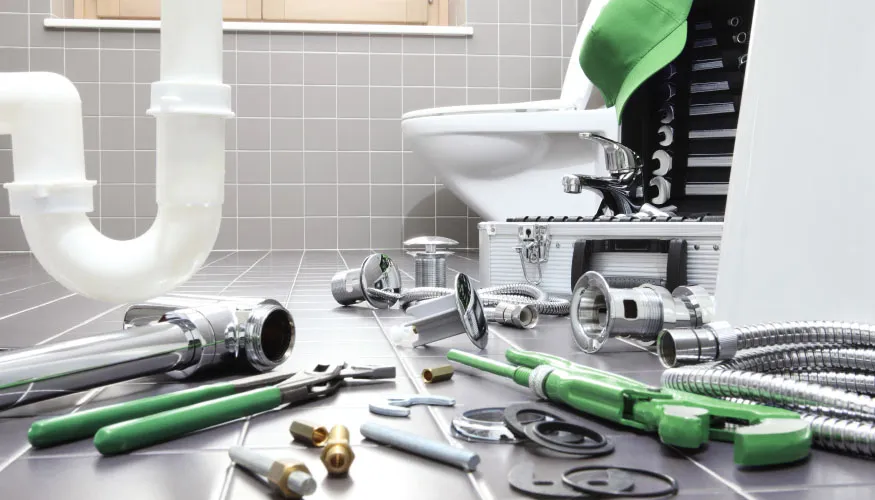Why Kitchen Exhaust Cleaning Matters
Kitchen exhaust systems play a significant role in maintaining air quality and temperature in a kitchen. The ductwork, fans, and filters within the system work together to extract heat, smoke, and cooking fumes from the kitchen, releasing them outside the building. However, when grease and grime build up, they obstruct the exhaust system’s airflow, affecting performance. Here’s why cleaning your kitchen exhaust system is essential:
1. Improved Air Quality and Safety
- Reduced Airborne Contaminants: A clean exhaust system filters out smoke and cooking fumes more effectively, improving indoor air quality.
- Lower Fire Hazard: Grease is highly flammable. When allowed to accumulate, it can ignite from a simple spark, putting both staff and customers at risk.
- Enhanced Odor Control: Properly cleaned exhaust systems reduce the lingering smell of smoke and food, providing a better atmosphere for staff and patrons.
2. Compliance with Health and Safety Standards
In Jumeirah and throughout Dubai, commercial kitchens must adhere to strict health and safety regulations. Kitchen exhaust systems must be kept clean to meet these codes. Non-compliance can result in fines, business disruptions, or even closures. Regular cleaning ensures that kitchens meet safety and hygiene standards.
3. Energy Efficiency
A clean exhaust system is far more efficient than one clogged with grease and grime. Obstructed airflow means that fans have to work harder to vent smoke and heat, consuming more energy and increasing utility costs. Regular cleaning reduces this strain on the system, saving money and energy over time.
The Science of Grease Accumulation
Understanding why kitchen exhaust cleaning is necessary begins with the science of grease accumulation. During cooking, oils, fats, and grease vaporize, creating tiny particles that cling to surfaces they come into contact with. As these particles travel through the exhaust system, they adhere to filters, ducts, and fans, creating a sticky, flammable layer. Over time, these particles build up, reducing ventilation efficiency and increasing the risk of fire.
Key Factors Contributing to Grease Accumulation
- Cooking Volume: High cooking volumes lead to faster grease buildup in the exhaust system.
- Cooking Techniques: Frying and grilling produce more airborne grease particles than boiling or baking, increasing the likelihood of buildup.
- Ventilation Design: Older or inefficient ventilation systems may accumulate grease faster due to poor airflow.
The Process of Kitchen Exhaust Cleaning
Cleaning a kitchen exhaust system is a meticulous process that requires specialized equipment and expertise. Trained professionals use various techniques to ensure that all components, including hoods, filters, ducts, and fans, are free from grease and other contaminants. Here’s an overview of the steps involved in kitchen exhaust cleaning:
Step 1: Inspection
Professionals begin by inspecting the exhaust system to determine the level of grease buildup and identify any potential hazards. This step is crucial for developing a cleaning strategy and ensuring that the system meets regulatory standards.
Step 2: Removing Filters and Grease Traps
Filters and grease traps are removed for separate cleaning. These parts capture a significant amount of grease and require thorough scrubbing or soaking to remove all buildup.
Step 3: Power Washing and Degreasing
The interior of the exhaust system, including the ducts and hood, is cleaned using powerful degreasers and power-washing equipment. This process breaks down and removes stubborn grease deposits, ensuring that the system is thoroughly cleaned.
Step 4: Fan and Duct Cleaning
Fans and ducts are essential components of the exhaust system. If grease buildup is significant in these areas, they can become inefficient or even fail. Technicians clean and inspect these parts to maintain optimal airflow.
Step 5: Final Inspection and Documentation
After cleaning, technicians perform a final inspection to ensure all grease and debris are removed. Many companies provide documentation, including before-and-after photos, to demonstrate compliance with health and safety standards.
How Often Should You Clean Your Kitchen Exhaust System?
The frequency of kitchen exhaust cleaning depends on several factors, such as the type of cooking, the volume of cooking, and local regulations. In general:
- High-Volume Kitchens (e.g., restaurants and cafeterias): Every 3 months
- Moderate-Volume Kitchens (e.g., hotel kitchens): Every 6 months
- Low-Volume Kitchens (e.g., seasonal or occasional-use kitchens): Once a year
Regular cleaning not only ensures compliance with health codes but also extends the life of your exhaust system by preventing excessive wear and tear from grease buildup.
DIY vs. Professional Kitchen Exhaust Cleaning
While it may be tempting to perform kitchen exhaust cleaning yourself, professional cleaning is recommended due to the complexity of the process and the risks involved. Here’s a comparison:
DIY Kitchen Exhaust Cleaning
- Pros:
- Cost-effective for basic cleaning
- Suitable for minor, routine maintenance
- Cons:
- Limited access to equipment and techniques needed for deep cleaning
- Risk of missed spots and safety hazards
Professional Kitchen Exhaust Cleaning
- Pros:
- Trained professionals use specialized equipment for thorough cleaning
- Compliance with health and safety regulations
- Reduced risk of fire and improved ventilation efficiency
- Cons:
- Higher upfront cost, but it often saves money over time by reducing energy costs and the risk of costly repairs
Benefits of Choosing a Reliable Kitchen Exhaust Cleaning Company in Jumeirah
Partnering with a reputable kitchen exhaust cleaning company offers numerous benefits, especially in a location like Jumeirah, where health and safety standards are stringent. Here’s why professional services are beneficial:
- Certified Technicians: Experienced technicians understand the complexities of kitchen exhaust systems and are trained to handle even the most challenging cleaning tasks.
- Compliance Assurance: Reliable companies ensure your exhaust system meets local health and safety regulations, protecting your business from fines or closures.
- Enhanced Efficiency: Professional cleaning reduces the workload on fans and ducts, promoting energy efficiency and saving on utility costs.
- Detailed Documentation: Many cleaning companies provide documentation to demonstrate compliance, which can be helpful during health inspections.
Conclusion
Kitchen exhaust cleaning in Jumeirah is more than just a routine maintenance task – it’s a vital component of kitchen safety, hygiene, and efficiency. By understanding the science behind grease accumulation and the benefits of regular cleaning, restaurant owners can make informed decisions about maintaining their exhaust systems. Partnering with a reliable cleaning company not only ensures compliance with health and safety standards but also contributes to a safer, more efficient kitchen environment.







